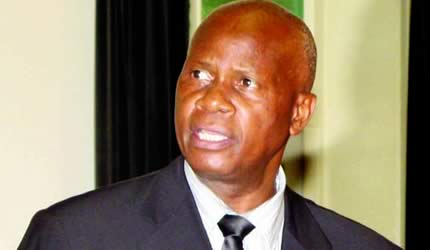People Living with Disabilities deserve better


Zimbabwe has ratified the Convention on the Rights of Persons with Disabilities and as a nation it is expected to fulfil its obligation and embrace basic principles as stipulated in the Convention to enable an inclusive society
Sally Nyakanyanga Features Correspondent
Three women with disabilities were called for a cervical cancer screening during a workshop in Bulawayo. The three women had varied disabilities, ranging from visual impairment, physical challenges and hearing and speech impairment. However, as the nurse was providing information on cancer, the woman with a hearing and speech impairment was totally left out as there was no sign language interpreter. As they arrived at the screening room entrance, the wheelchair-bound woman struggled to get into the screening room. These women were going for the same service but had different needs.
As the case above illustrates, people with disabilities are often left out due to lack of adequate, proper infrastructure and support systems to cater for their needs.
The United Nations has estimated that more than 70 percent of PWDs live in developing countries where support systems are not in place and their needs have been neglected.
UNFPA in its report — “Sexual and Reproductive Health of Persons with Disabilities” — noted that PWDs, more often are forced to cope with inadequate health services and limited access to education.
They have to grapple with the deprivation of opportunities in all aspects of life, including access to essential services. In particular, their sexuality has been ignored and their reproductive rights denied. People who are blind, deaf, or have intellectual or cognitive impairments, find that information on sexual and reproductive health is often inaccessible to them.
Moreover, because of the lack of physical access, the lack of disability-related technical and human support, stigma and discrimination, sexual and reproductive health services are often inaccessible as well.
The Zimbabwe Parents of Handicapped Children Association in its 2003 partial study revealed that most people with disabilities are more vulnerable to infections as they are not targeted in most programmes.
Furthermore, no special information packages and accessible formats targeting people with disabilities such as Braille have been put in place.
Testing and counselling services have not engaged specialised counsellors to deal with special kinds of disabilities such as deafness.
In addition, there is no baseline data to indicate the number of people with disabilities who are HIV positive as well as the types and distribution of various disabilities.
DHAT in collaboration with other players have chronicled the lives of people who are disabled and at the same time HIV positive in their documentary “Life Through my Eyes”. It bears testimony to the challenges and realities visually impaired families in Epworth have to grapple with in this age of HIV/Aids especially in a society where having a disability still warrants discrimination.
This documentary awakened me to the different realities people have to face in their lives. Who could have wanted or imagined a situation where one is disabled at the same time infected with HIV/Aids and, as if it is not enough, cannot protect his/her children from being infected?
It has been known in our circles that one with a disability is only expected to bear the brunt of being “abnormal”, that is being disabled.
The burden is even exacerbated when one has to manage another condition. As the Michael Blagango, a committee member at the DHAT, noted most disabled people often have to grapple with an indifferent medical personnel.
“How did you get infected,” becomes your greeting. This shows the level of intolerance in our society often exhibited to the disabled as people often imagine the possibility of a disabled person being HIV positive a well.
DHAT Country Co-ordinator, Hamida Ismail-Mauto stated that our national programming have adopted a one-size-fits-all approach hence has lumped disabled people among vulnerable groups. As the story above indicated, our national programming should realise the need for an inclusive society which ensures accessibility for all and being cognisant of the various needs of these disabled people.
More often than not, as we pass by visually impaired beggars in the city we often comment on them as having too much sex resulting in them having a myriad of kids.
Have we ever thought that who is giving these people information and to what extent is it of help to them?
Talking of development without embracing an inclusive attitude is no development at all.
A country should be judged by how it treats its vulnerable members of society and in this case the disabled.
Therefore, as the UNFPA director Thoraya Obaid once put it, the international goal to achieve universal access to reproductive health cannot be achieved unless pwds are brought into the mainstream and included in the policies and programmes to improve sexual and reproductive health.
Zimbabwe has ratified the Convention on the Rights of Persons with Disabilities and as a nation it is expected to fulfil its obligation and embrace basic principles as stipulated in the convention to enable an inclusive society.
Section 25 of the Convention states that “State parties should recognise that people with disabilities have the right to the enjoyment of the highest attainable standard of health without discrimination on the basis of disability and should also take appropriate measures to ensure access for persons with disabilities to health services that are gender sensitive, including health related rehabilitation”.
Therefore there is need to establish co-ordinated structures across various Government ministries to deal with HIV and disability.
Also incorporating and co-ordinating efforts and programmes targeted at PWDs is crucial. Involvement of PWDs in HIV programming and mainstream and establishing the statistics of how many people with disability are HIV positive are important.
While the move to have two members from the disability community in the Senate is welcome, more still needs to be done to ensure full recognition of the disabled in the country.
- Feedback: [email protected]









Comments